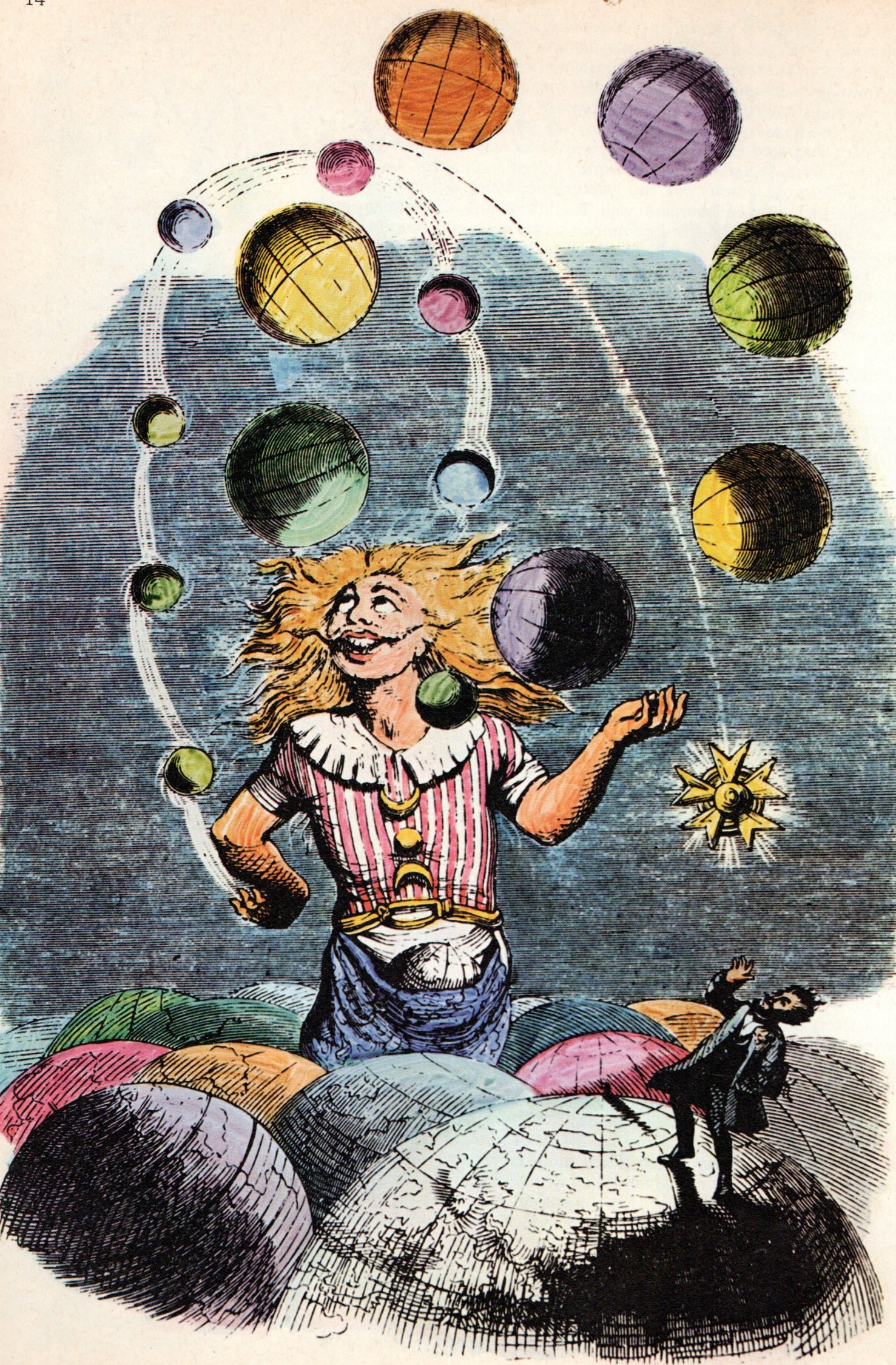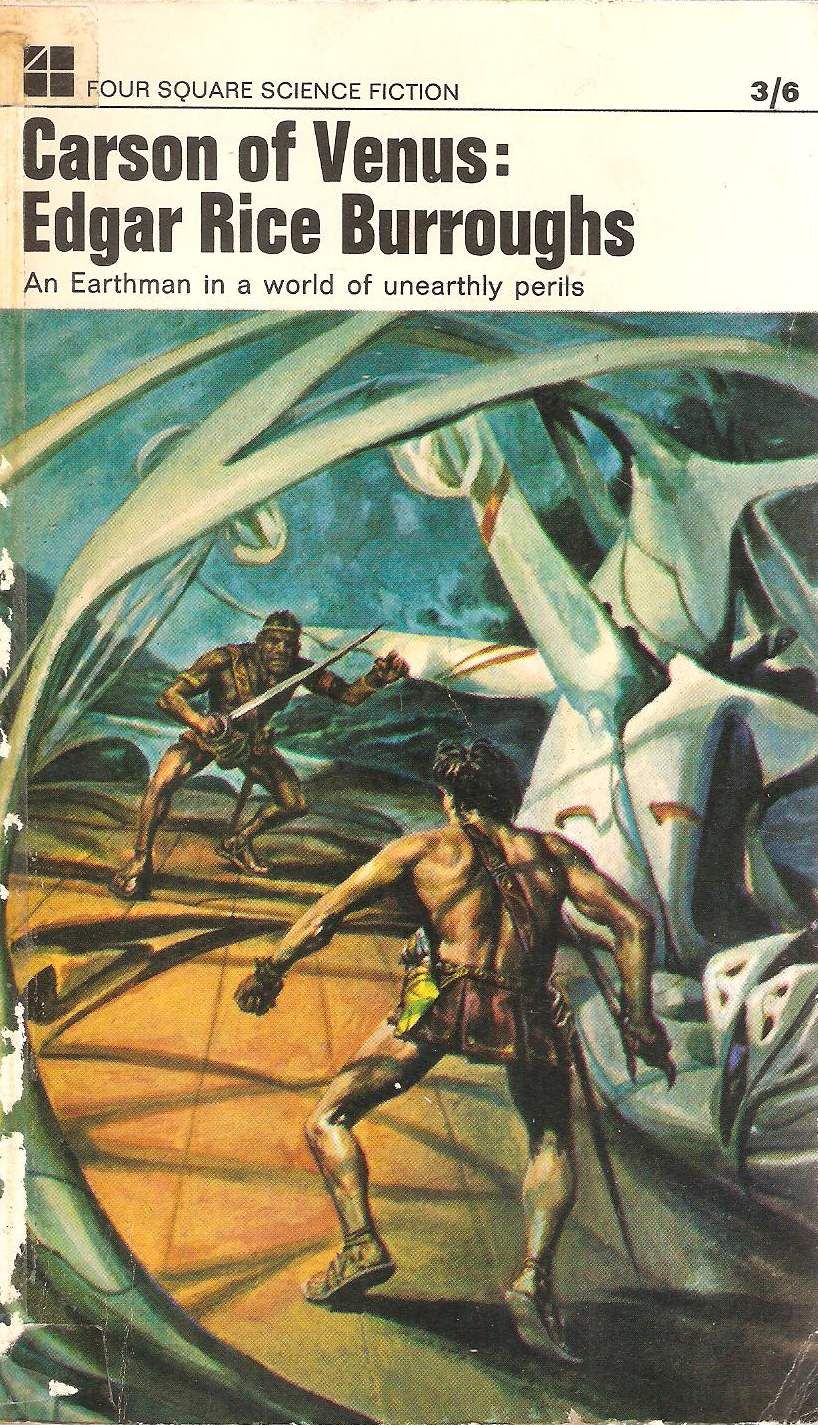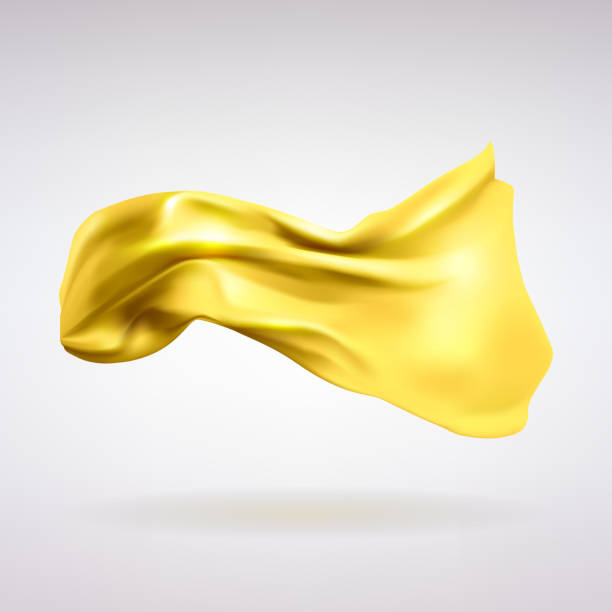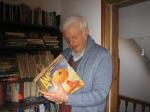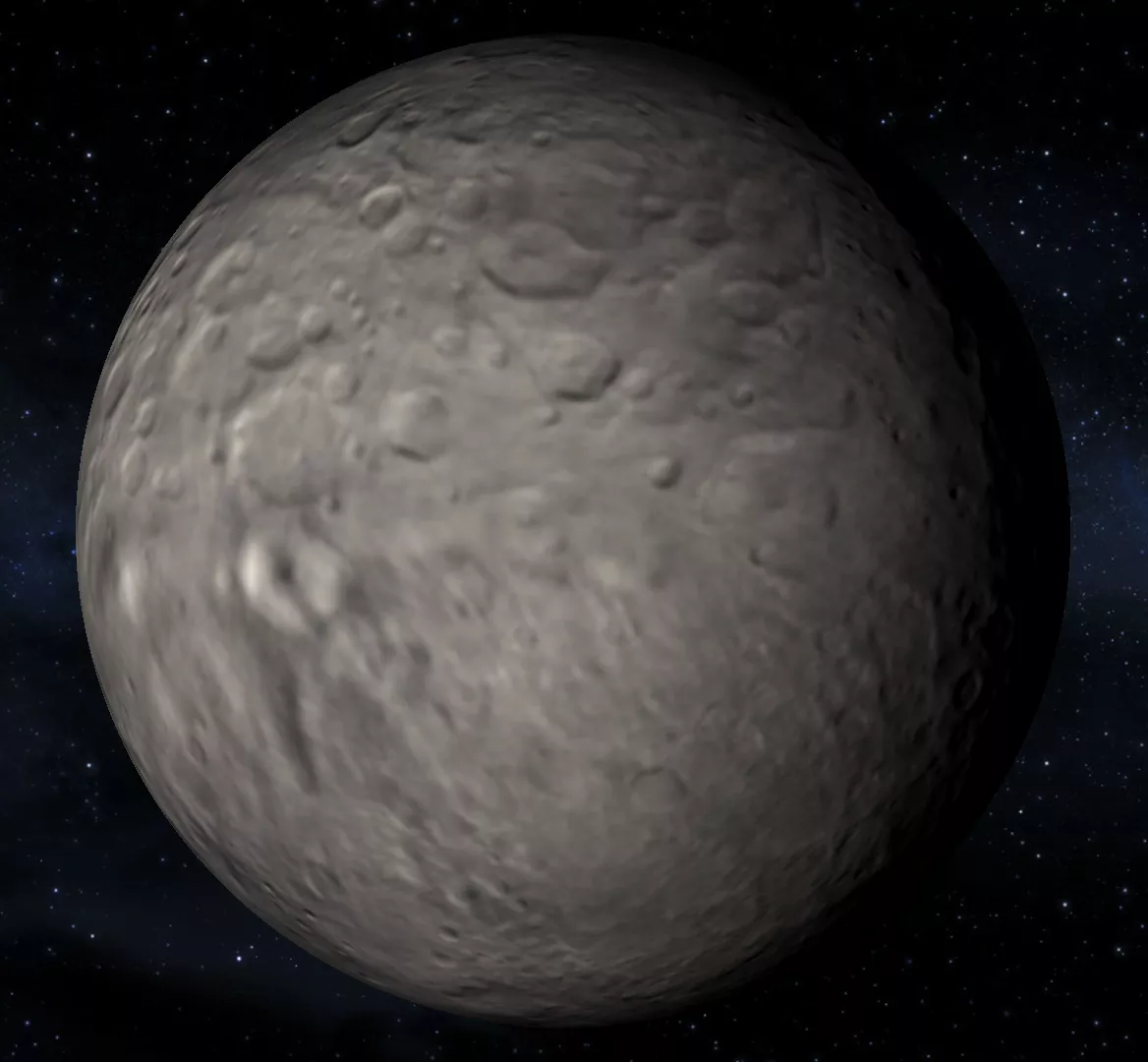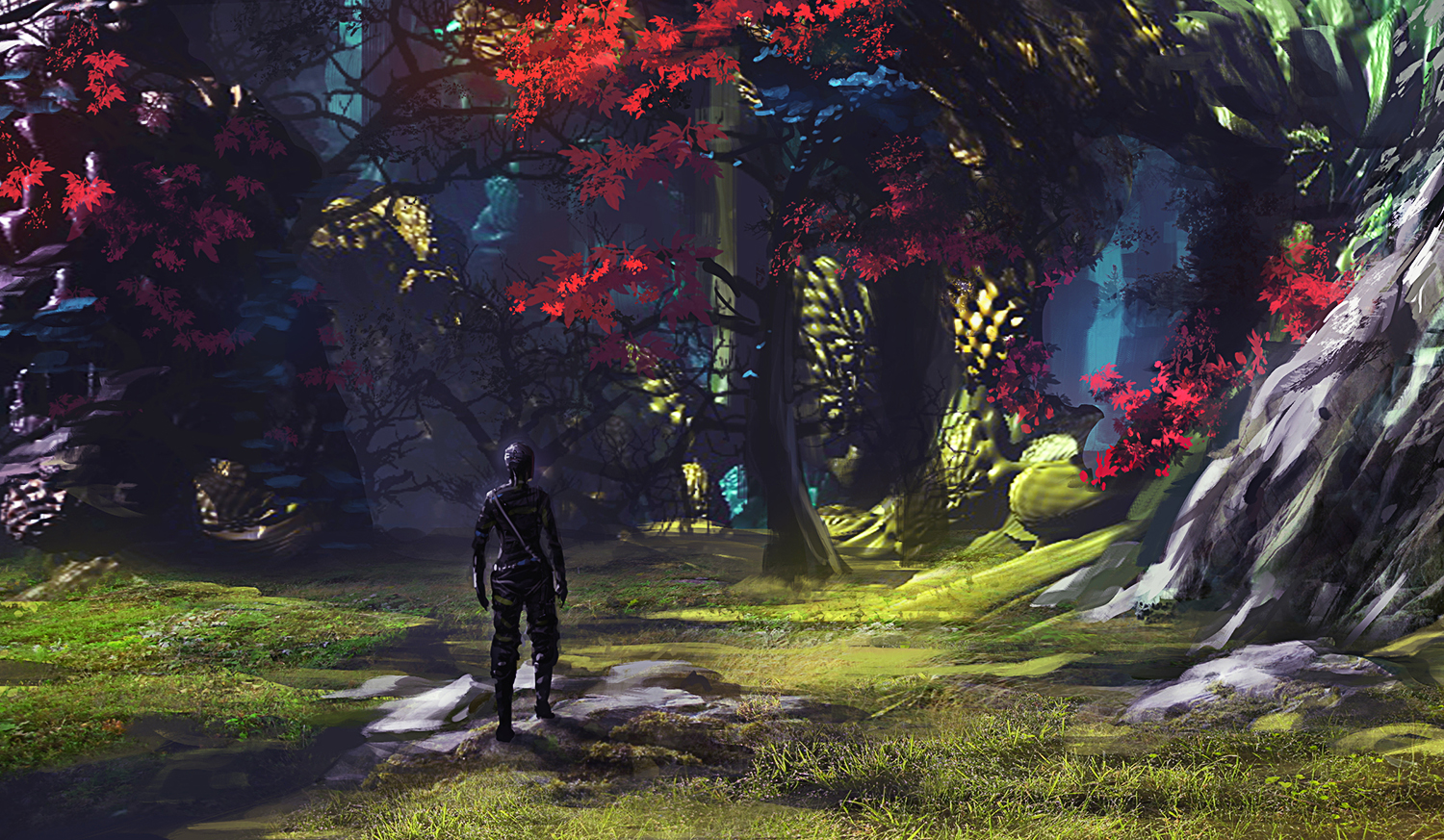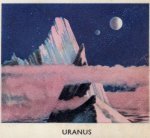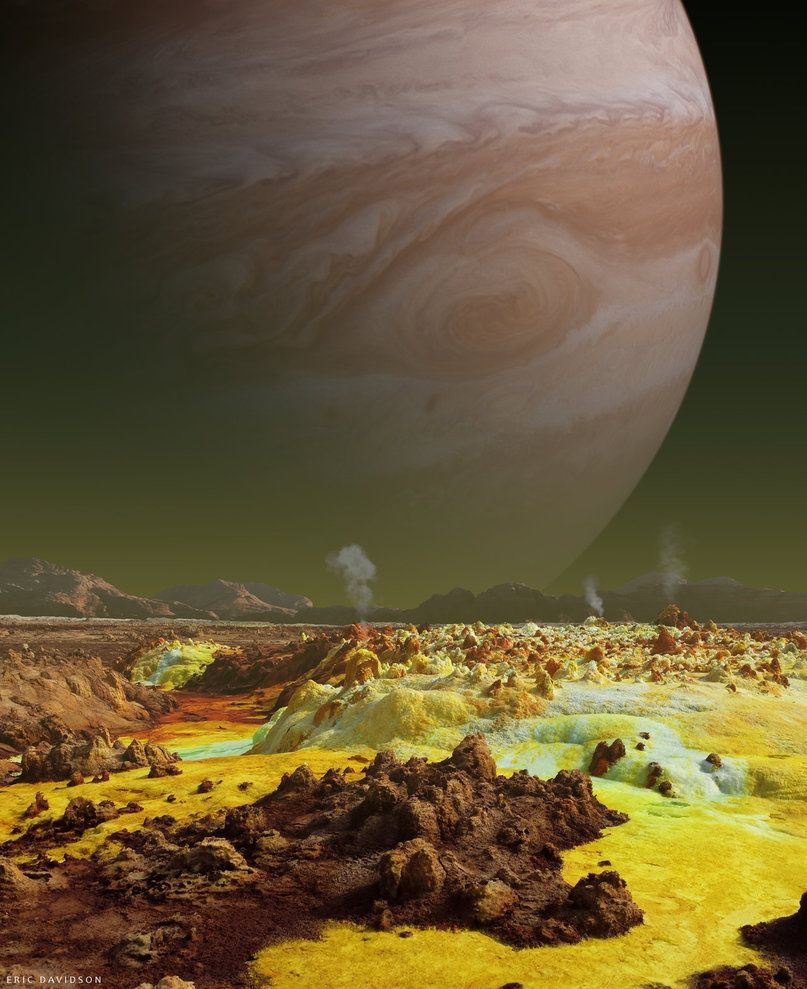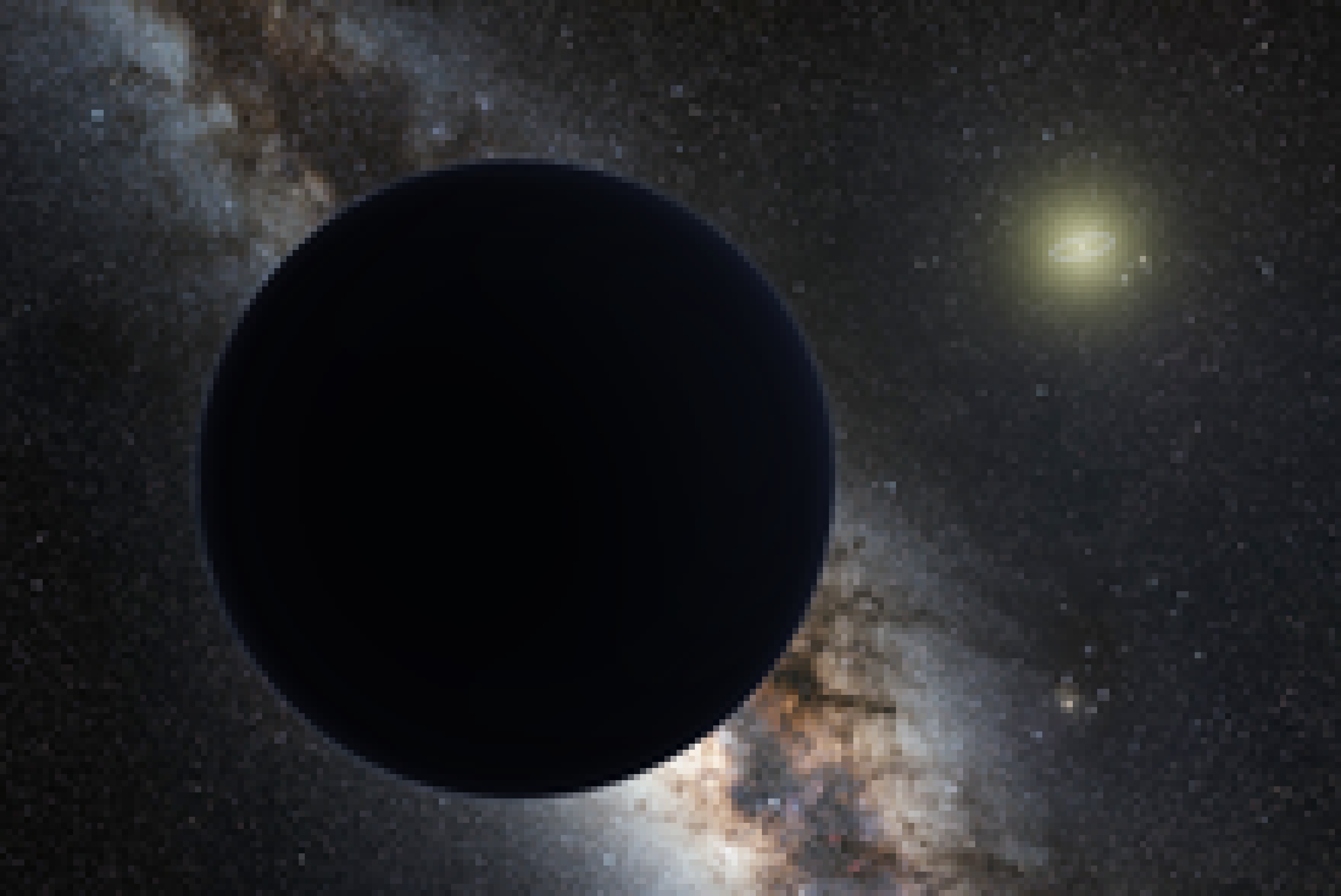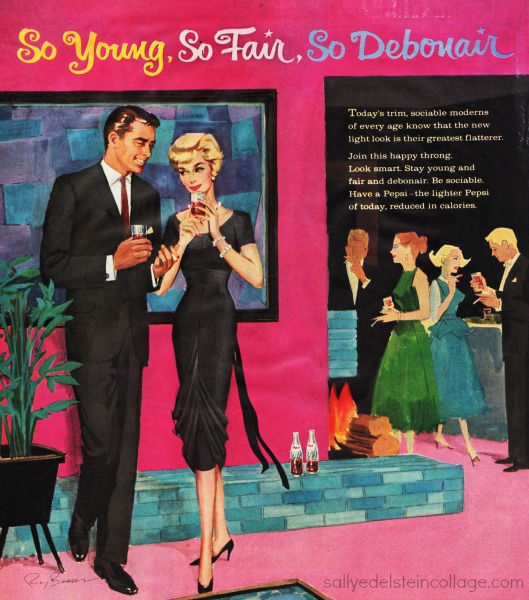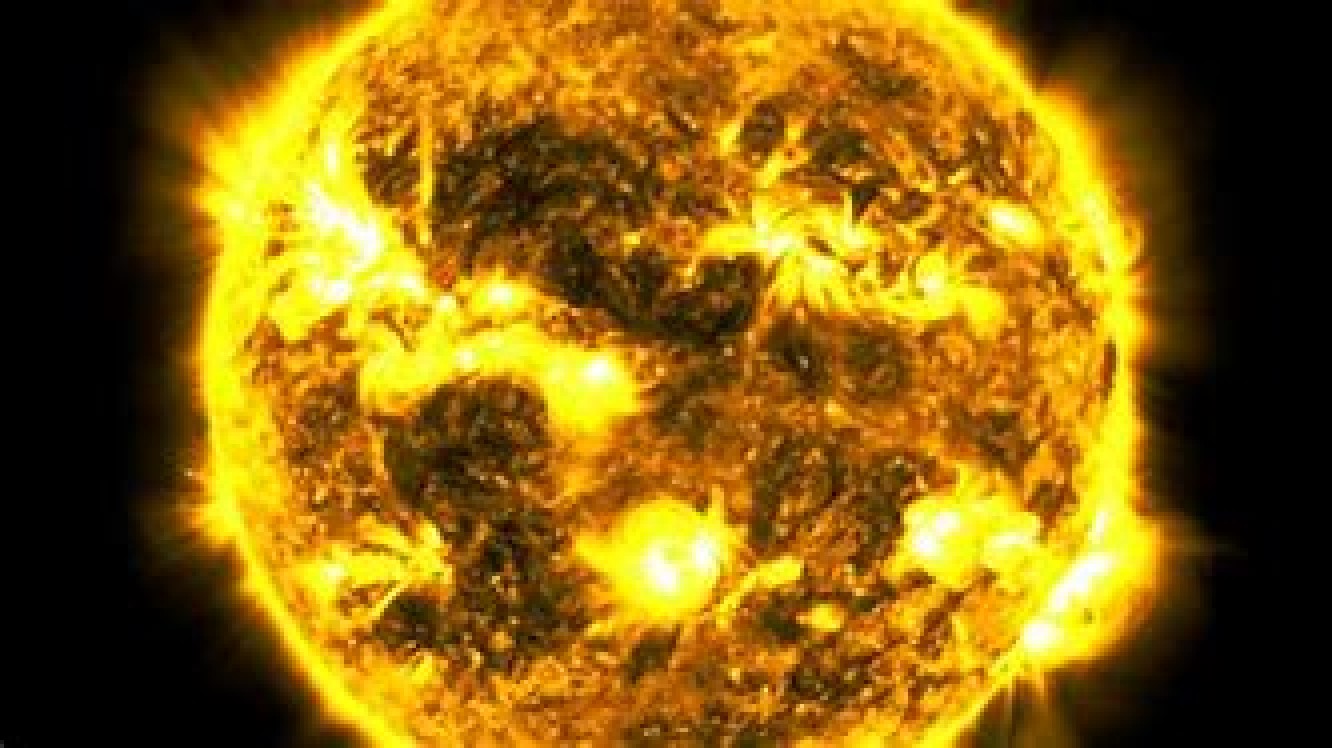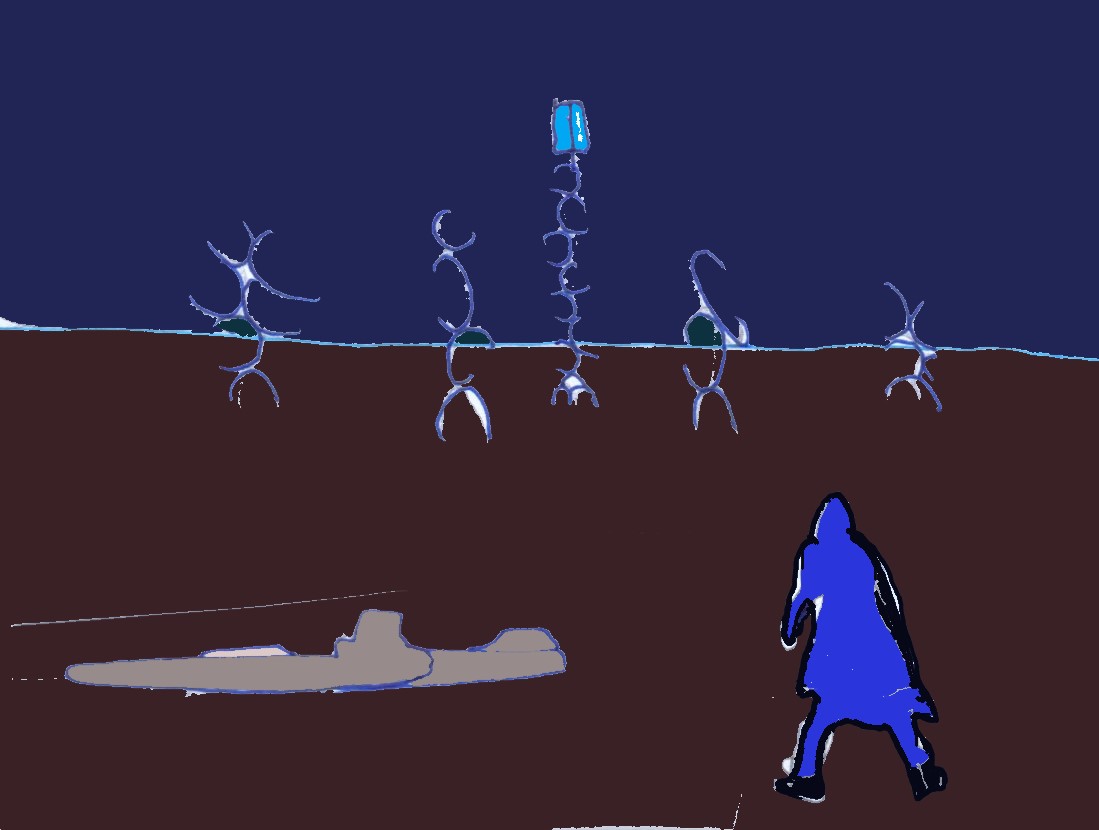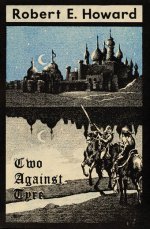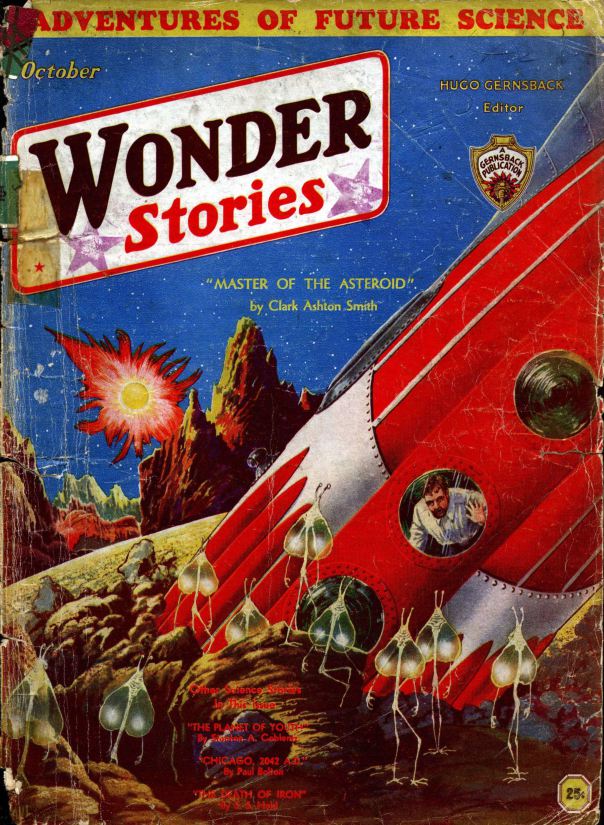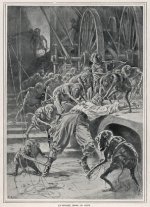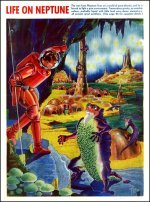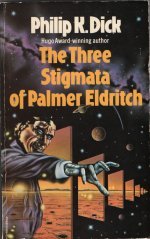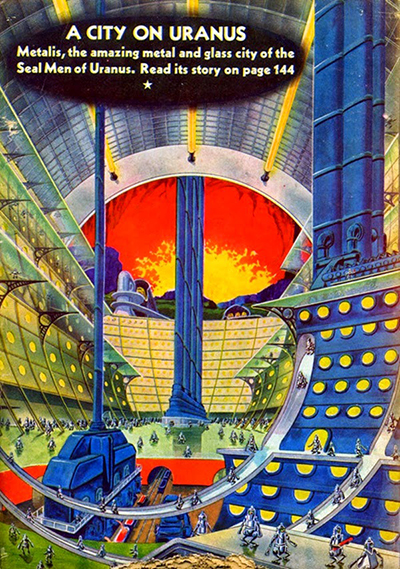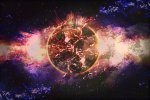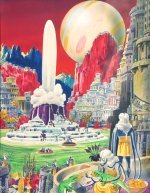Valeddom - Mercury Awaits
This is the novel which resurrects the Twilight Belt version of the planet.
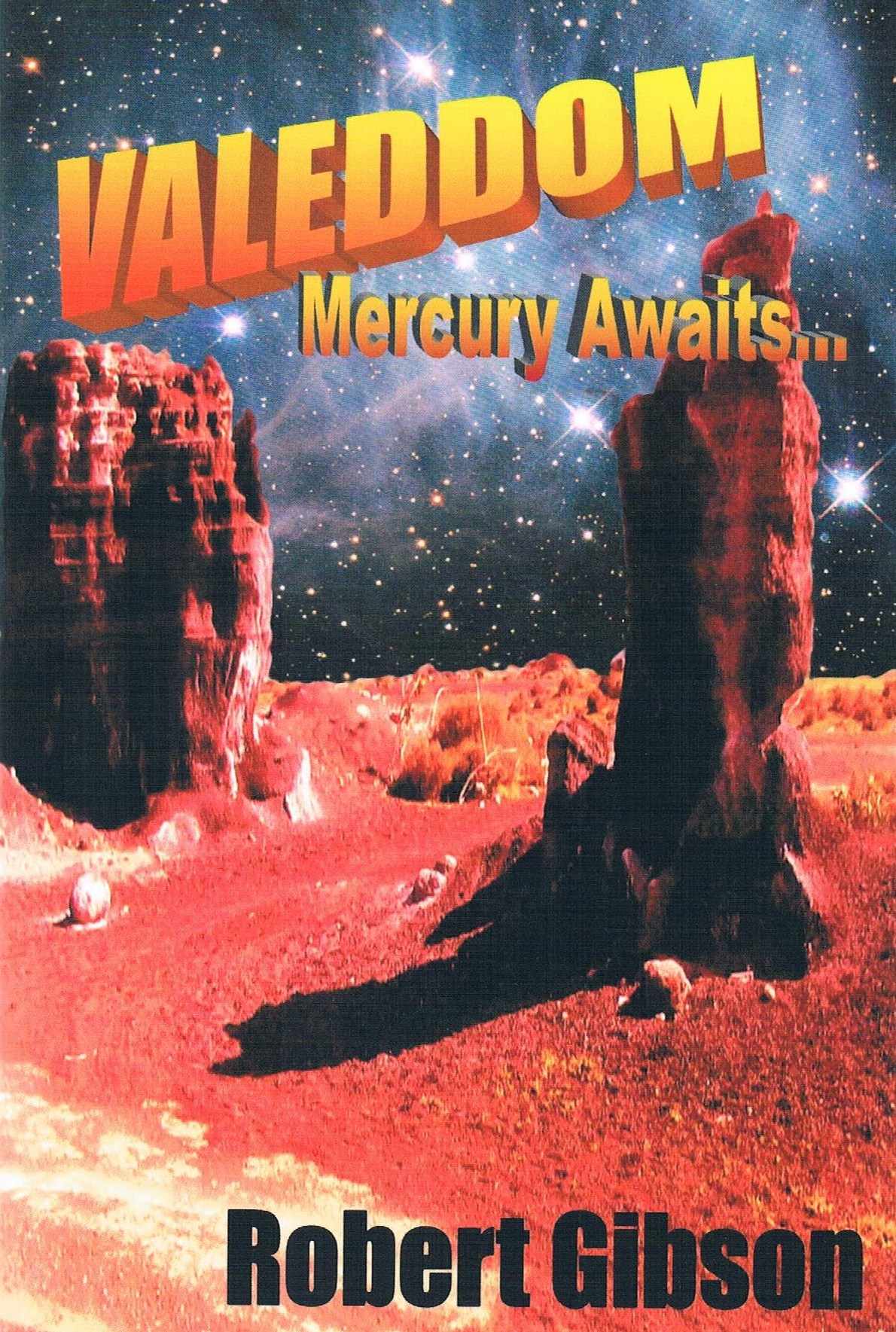
Stid: Yeah, this is the novel you mentioned, that ignores scientific facts. This is the deliberately obscurantist stuff which you wrongly class as science fiction. You need to call it something else. Science fantasy, to put it kindly. Fakery, to put it more bluntly.
Zendexor: It's not fakery if a reason is given, a justification for the apparent flouting of science. And, in Valeddom, we are given a reason.
It takes the form of an "alien interference" hypothesis which is the exact opposite of the one explored by S M Stirling in his Venus and Mars novels. Stirling's alternate history has interstellar aliens terraforming our neighbouring planets in the Jurassic period and seeding them with life. Gibson's work on the other hand is not strictly speaking an alternate history at all. Rather, he's suggesting that it's our official view of a lifeless Mercury that stems from alien intervention.
Stid: You mean, an evil alien power killed Mercury?
Zendexor: No, not quite - just killed the view of Mercury from Earth.
The plot of Valeddom reveals that our scientists have been fooled by an alien power, in a deception so gigantic as to corrupt our data on Mercury's rotation.
No matter how fantastic this idea may seem, it is not an "alternate history": that is to say, it's not logically incompatible with our own timeline. If our data have been corrupted at source -
Harlei: That's an idea with possibilities for the whole genre! We could for instance have novels of canal-building Martians now - just have it that they're hiding it all from Earth's instruments. Hypnotising us, maybe.
Stid: If you take that road you can justify anything whatsoever. The theme of deceptive illusion is ultimately as boringly facile as the "it was all a dream" ending. No more boundaries means no real bite in the plot. Result: a big yawn.
Zendexor: You might be right, Stid, if that was all there was to it. But the theme is given more ballast in Valeddom. In the denouement of that novel the "boringification" of the Solar System, which lost us the Martian canals and the Mercurian Twilight Belt, is finally linked to the boringification of Earth itself.
FILLING A GAP IN THE LITERATURE
Harlei: Is this, then, the book I've been waiting for? The Mercury adventure I so wish that ERB had written? So many times I've thought how great it would have been if he could have added a Twilight Belt tale to place alongside his Mars, Venus and Moon adventures...
Zendexor: Depends. You won't find any kidnapped princesses in the plot of Valeddom. But its author's aims ought to make a Burroughs fan feel at home. The spirit of planetary romance - the loose-reined imagination which plays true to the myths of the Old Solar System - receives due homage in this Mercurian tale.
On the other hand...
Harlei: Don't spoil it! I was just gong to rush out and order it.
Zendexor: I only mean, don't expect a pastiche of Burroughs. Valeddom is not much like the other refusenik works, the Jandar of Callisto series or the Kane of Old Mars series.
Harlei: Whose stuff then does it remind you of? Or - do you mean, it's not a pastiche at all?
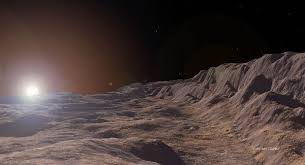
Zendexor: That's right, it isn't. No more than was the work of Burroughs himself. He was an original force, wasn't he? That is why you like his stuff so much. His style, his tone and his subject matter formed a balance that was fresh and new. Of course, you can trace influences... everyone's work has them. And the influences on Valeddom are openly acknowledged. The author weaves them deliberately into the plot. This is because his hero, stranded on Mercury in a Mercurian body, is inspired to guess that some droplets of truth have seeped from that world to Earth, surfacing in the fiction of Alan E. Nourse, Clark Ashton Smith and Leigh Brackett. Just an occasional trace: a word, a name, a particular landscape vista now and then.
But in Valeddom all this and much else besides is brought together and synthesized into the vision of a world, just as Burroughs built from the Lowell/Schiaparelli vision of Mars.
Stid: And the one is as out of date as the other.
Harlei: There you go again. But you're not going to spoil this one for me. I'm off to order it...
Stid: Please yourself, but I would rather read about the real Mercury. Valid things aren't spoiled by truth. Truth only spoils untruth.
Zendexor: Ah yes, but one truth you need to notice here, is that the traditional Twilight Belt Mercury was a hard act to follow. So if an author does find a way to follow it - or rather, to prolong its life - it might be worth the attempt, might it not? For the sake of literature, I mean.
Stid: I suppose so - if it can be done for more than just escapist dream-mongering.
Harlei: You don't like escape, do you? You want to keep us all in you jail, don't you? A real committed screw, you are.
dreams are data
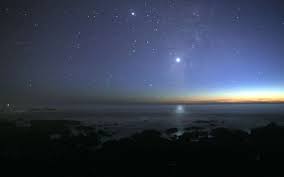 the Milb
the MilbZendexor: Now both of you watch your blood pressure and listen. Our fondest dreams (or our most beloved illusions if you want to call them that) are actually threads, clues. The further we follow them the deeper they lead us into insights about what we are. This must be so, for our dreams are part of us. You therefore, Stid, ought to concede that the author of a work like Valeddom is not being dishonest. The book may be "soft" rather than "hard" science fiction. You may even class it as mere science-fantasy, but if psychology is a science, dreams are data.
Harlei: I hope you're not going to tell me that it all turns out to be a dream.
Zendexor: Don't fret, Valeddom doesn't rely on that dreary plot device. The book makes the Twilight Belt real - fully wakened real. As real as Earth; in fact, in some ways more so.
Stid: "Large as life and twice as natural", eh?
Zendexor: Yes, believe it or not, the story (towards the end) becomes quite serious on that point: Earth is the world with the reality-problem!
vivid vs bland
Harlei: You mean that we on Earth are getting less real? Aha... so the Old Solar System is more real than the New Solar System...
Zendexor: What I mean is that the author is giving an interpretation of the cultural blandness, the metrication, over-regulation and so on, which spread boringness on Earth. He is suggesting that it all stems from the operation of a malign interplanetary force. And it's this "boringification" which stopped us seeing the Twilight Belt on Mercury.
Stid: I take it he's implying that when humans actually visit Mercury, they'll get the Twilight Belt back again. The malign illusion will vanish and the lucky astronauts will suddenly find the pre-1960s beliefs confirmed.
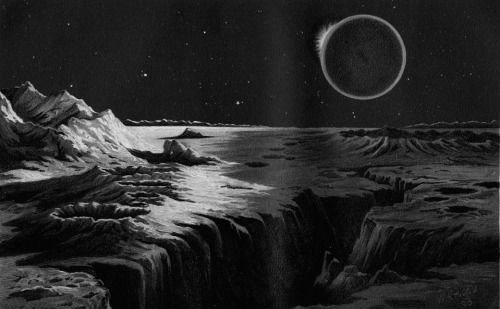
Zendexor: Possibly, or else maybe space travellers from Earth would spread our plague of boringness with them and the Twilight Belt would vanish when they touched it.
Stid: But hang on, don't we find out? Doesn't the book have a Terrestrial protagonist on Mercury?
Zendexor: Mentally, yes. Not physically. The hero is injured in a bus crash...
Stid: Don't tell me: he wakes up on Mercury.
Zendexor: In a Mercurian body.
Stid: Tough on the previous owner.
Zendexor: That's what the hero thinks at first. But it turns out not to be quite like that. Why don't you read it and see? And while you're about it, put your scientific quibbles aside and evaluate the book as a whole. Ask yourself: when all's said and done, what's its mood, its own particular haunting; with what quality does the author infuse his vision of Mercury?
Stid: The mood of an adventure playground, I dare say - that's what planetary romances aim at.
character of valeddom
Zendexor: "Adventure playground"? Shorn of its sarcasm, that's a fair enough comment as far as it goes. But it misses the point. Adventure takes many forms, an infinite variety of forms. Even within ERB's own work, room exists for plenty of difference between (say) Barsoom and Amtor. And Valeddom is distinct from either. I'd say the mood of this tale can be summed up in one phrase: vastness, closing in.
Not the hugeness of a giant planet, but the different hugeness of a small planet. Precisely because of its smallness it is haunted by infinity pressing in on all sides, to soak it with proximity to the night of space, or to the rage of the Sun.
A planet only some 3,000 miles in diameter, and out of that limited size only a fraction habitable... a belt of native life, hemmed on one side by the furnace of Dayside, on the other by Nightside's frozen dark. Between these extremes, a Twilight Belt where huddle a few native city-states with tiny populations and rare contact between them. Ancient civilizations, jewels of life twinkling on the edge of the molten and the freezing...
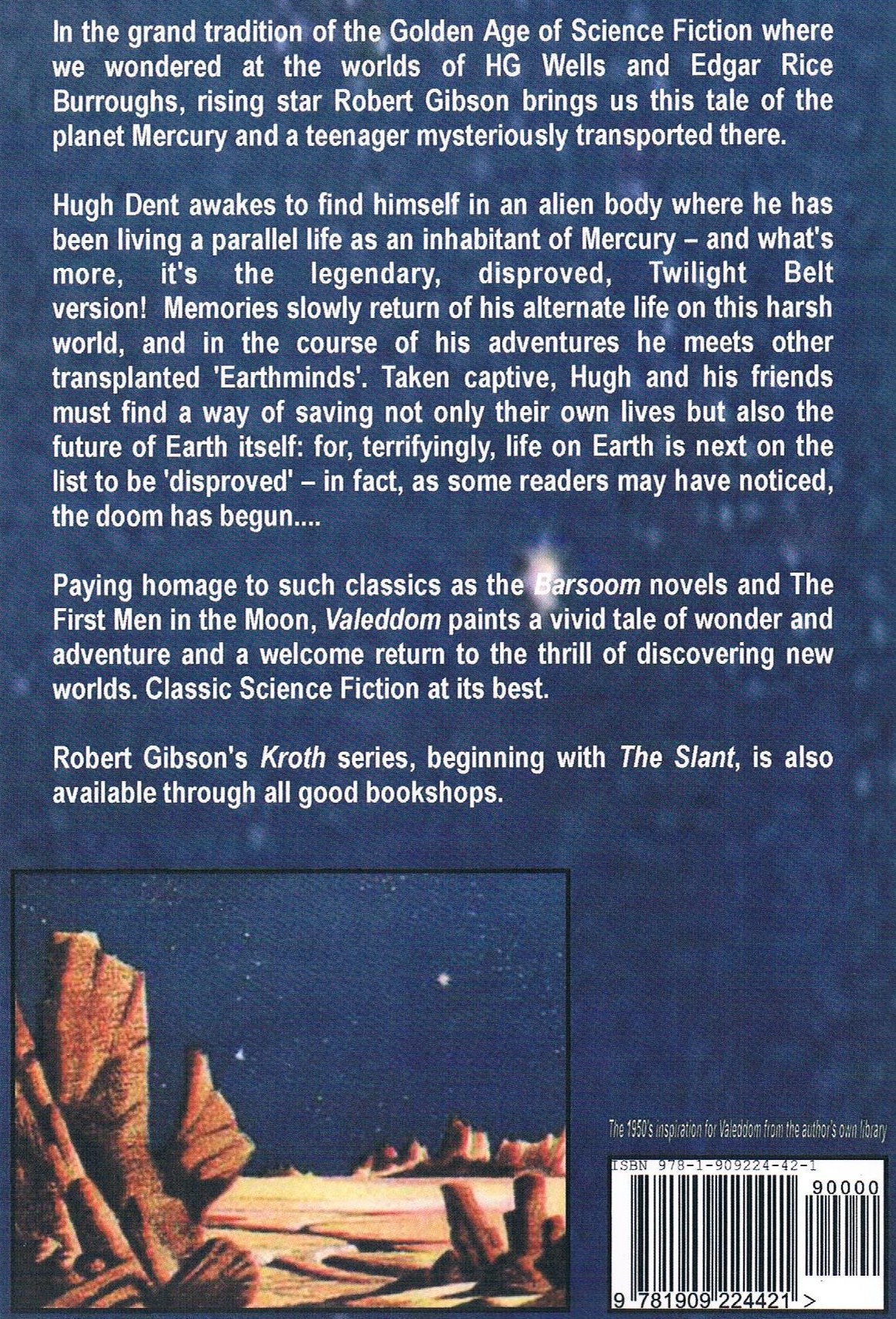
One of these cultures, the city-state of Ixli, has established a Mercy Station in the wilderness, to care for those unfortunates who suffer atavistic degeneration into submen. Citizens take turns to go out to replenish supplies at the Mercy Station and - if they have relatives among the exiled submen - to visit them. Hugh Dent of Earth, victim of a bus smash, finds himself in a Mercurian subman's body and happens to wander to the Mercy Station shortly before a visit from his Mercurian family.
They are amazed at the change in him. His healthy Earth mind has counteracted the Mercurian degenerative illness and his native family hail the change as a miracle. When they start off on the trek homewards, towards Ixli, they feel justified in bringing him with them (together with another wanderer who is also an Earthmind in a Mercurian body - Hugh's teacher, Mr Bryce, who'd been in the same bus smash as Hugh).
I wasn't on any kind of ridge, and there was no fog, but always in Yonnimay [the Twilight Belt] I had a deep and strong sense of walking a tightrope or ribbon or plank, a thin line of life in the midst of death. It was impossible to forget that my path was threading a belt of habitable terrain hemmed in by two immensities of heat and cold, even though the "ribbon" was wide enough to prevent me from actually seeing these lurking extremes on either side.
Yes, the Twilight Belt felt thin. The planet is small to start with: just over 3000 miles in diameter. Take a fifty or sixty mile ribbon out of that, and, if you wander in such a place, you're going to feel the Beyond breathing down your neck, because smallness, ending sooner, brings bigness closer; ground and rocks look solid enough but they're transparent to the haunt of infinity that lies in wait not far away.
Pushing back against this awe that was leaning on my spirit, I sought to deduce the circulation pattern of those nerve-wracking winds that shrilled over my head - that would be something within my mental range, like an exercise in a Geography lesson. Hot air must rise at the edge of Darkside to our left, while cold air must blow in from Nightside to take its place. Delighted with my little bit of reasoning, I wanted to chat about it to Bryce. But I dared not. We could no longer speak to each other out of earshot of the others. To talk English would of course give the game away. And if I talked to him in Valeddomian, about the sort of thing we were probably supposed to know about already, that would give the game away too.
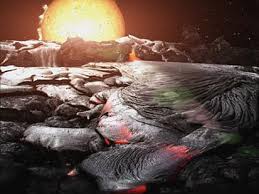
Fortunately I wasn't dependent upon speech with Bryce. I had the companionship of my Mercurian family. Walking with them, at first in a general silence and then, as the hours passed, listening as they began to chat with one another, without me being pressed to join in, was just what I needed. I was thankful that they were not trying to get to know me too fast; I was grateful for the quiet opportunity they were giving me, to adjust to them and their culture.
You may be wondering how I found it possible to think of Fnekt and Opavedwa as my father and mother, considering that I already had a father and mother on Earth. All I can say is that some deep "click" convinced me that my Mercurian parents were truly what they claimed to be. Of course, it was only my physical self, that was descended from them. But - the thought hit me - this is likewise true of my parents on Earth! Minds don't have chromosomes; minds are not genetic; and so -
Our minds have no relatives!
Usually there's no call to realize this. It's only if you change bodies that the issue arises.
It makes you think: who are we, really?
Stop that, I said to myself. Save the philosophy for later. Keep to the point. The point is survival.
In fact - I told myself - the point now is to live up to membership of this Nydr family. It makes a lot of sense to respect such people, and to try to imitate the way they can walk so cleanly in the midst of the unknown.
Harlei: One further question, Zendexor. Does this book give us the history of Mercury, as the same author gives the history of Uranus in his first section of Uranian Gleams?
Zendexor: There isn't room for that, as Valeddom is a much shorter book. But in chapter 6, in the scene among the perilous archives of Ixli, the hero's mind does get drawn into (even swallowed by) a vision, or more than a vision, of the Mercurian past.
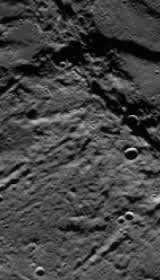
Stid: And there's a lurking evil in that distant past - an evil which latches onto historical researchers and somehow uses their scrutiny to jump forward into the present... but what exactly is the dreaded hourless tapede? That bit puzzled me, because - well, for one thing, it's just an animal -
mercurian good and evil
Zendexor: I expected you to be puzzled, Stid. Natural-law ethics can be a bit hard on the contemporary Terrestrial mind-set. Most people nowadays, at least in the Western world, go in for voluntarist ethics.
Stid: And why not? Sounds reasonable to me. The basis of moral choice. Good and evil are chosen by the will. That's what makes us responsible...
Zendexor: All I can say to that eminently reasonable, modern, up-to-date attitude, is that it flies in the face of most of human values throughout most of history.
In almost all ages except our own, "evil" was defined only partly by "malevolence". Huge areas of it were concerned not with the motivations of the doer, but with the nature of the deed. That's evil in the natural law sense - a failure to conform to the Tao or pattern or way of rightness - no matter what your motives may be, or how little you could help doing what you did.
Stid: Seems harsh to me...
Zendexor: Harsh? You mean, one ought for example to say, "poor vampires, mustn't blame them, they can't help it, it's wrong to stigmatise them as 'evil', in fact one shouldn't upset them by calling them vampires, call them, er, 'nocturnals'..."
Stid: I get the point. But does the situation arise? There aren't such things as vampires.
Zendexor: And that's just as well, for today's liberal ethics would be clueless in the face of vampirism.
Stid: And there aren't any vampires on Valeddom, either, so aren't we wandering off the point?
Zendexor: No - for there is the hourless tapede.
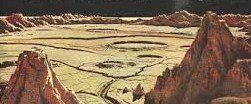

It's all in the mind, it's all in the mind, I chanted, while the tapede took some forward steps, with a peculiar jerkiness like a stop-motion model monster in an early horror movie... When it gets to us it will just pass through us! And we'll just pass through it! Because it's only a mental image!
...No use. You might as well try to blank out fear in the presence of a ghost by telling yourself that it doesn't weigh anything...
There's a good Valeddomian word: Bufubu. Translation: "Never mind the theory, I want to get out of here."
Bryce turned to me and I saw his lips move and I heard words. But lips and words weren't quite synchronised; as can happen on live TV-by-satellite they were smeared by a slight signal gap between speech and image as he said: "And yet - and yet - it's only a beast... The thing was a deadly predator, no doubt - but without intelligence, it can't have been bad."
Bryce doesn't get it. This hinders their escape, until it's almost too late.
Robert Gibson, Valeddom - Mercury Awaits (2013); Uranian Gleams (2015); Michael Moorcock, Kane of Old Mars, comprising City of the Beast (1965), Lord of the Spiders (1968), and Masters of the Pit (1969)
For more on the hourless tapede, see the page on invasions from Mercury.
For the Mercurian "ultimate language", Noleddern, see the page on alien scripts.
For the Dayside "salamanders", see the page on Brightside Crossing.
For a comparison between Valeddom and another Mercury novel, see Battle on Mercury.
For the Awakening on Valeddom, as compared to the time-jump shock in Leigh Brackett's The Sword of Rhiannon, see the Diary for 4th May 2017. And for the dreamlike reality of this awakening, see The Low Growl of Meaning.
For RSS echoes of the Twilight Belt, see The poles of Mercury.
See the extract, Brainy Mercurian cacti.
› Valeddom
